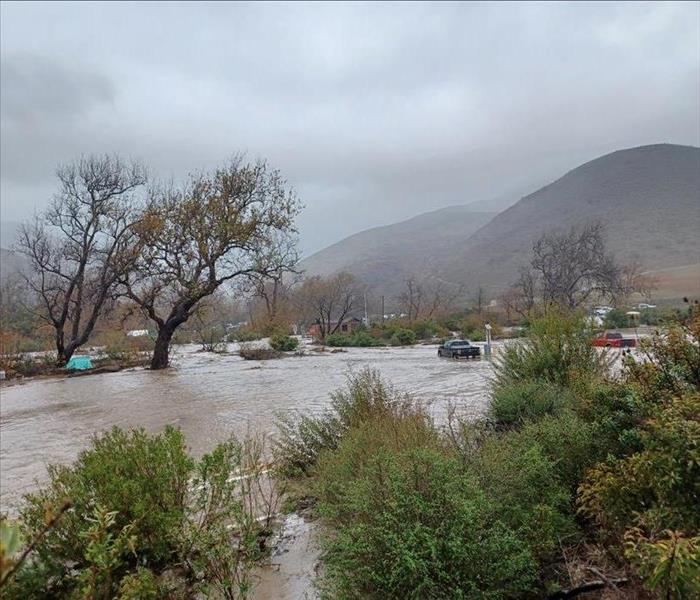Are your ready for a storm?
1/4/2023 (Permalink)
Disasters happen. It’s frightening to think about the possibility of having to flee your home due to a widespread emergency, but it’s even more frightening to think that you would be entirely unprepared for such a situation. By making just a few considerations now, you and your family can be ready for an evacuation in the future.
If a local emergency triggers an evacuation, your family will need a place to go. That’s why the first step in your evacuation plan should be designating two or three out-of-town locations in separate directions where you could go. These locations could be hotels or houses of friends or family; if you have pets, it’s important to make sure they can shelter your pets, too. Then make sure you’re familiar with alternate routes away from your home, and means of public transportation in case driving your vehicle isn’t an option.
With many weather events and some natural disasters (like forest fires), there may be a forewarning that you’ll need to evacuate. In these cases, make sure to keep your gas tank full and to create a “go-bag” of essentials that you can pick up and take with you at a moment’s notice. When local officials give the word to evacuate, take as few cars as possible and stick to recommended evacuation routes as shortcuts could be blocked. Before you leave, it’s also best to unplug electrical equipment (though it’s only necessary to unplug refrigerators and freezers if there’s a risk of flooding), lock all of your doors and windows, and activate your family communication plan by letting an out-of-town family member know where you’re going and when you arrive. Only return home once local officials have said it’s safe to do so.
When a local emergency that necessitates evacuation has occurred or may occur, the most important steps to take are to keep updated with local news radio and to always follow local officials’ instructions. For more information on emergency preparedness, check out the other blogs in the “storm” category, and ready.gov/plan






 24/7 Emergency Service
24/7 Emergency Service
